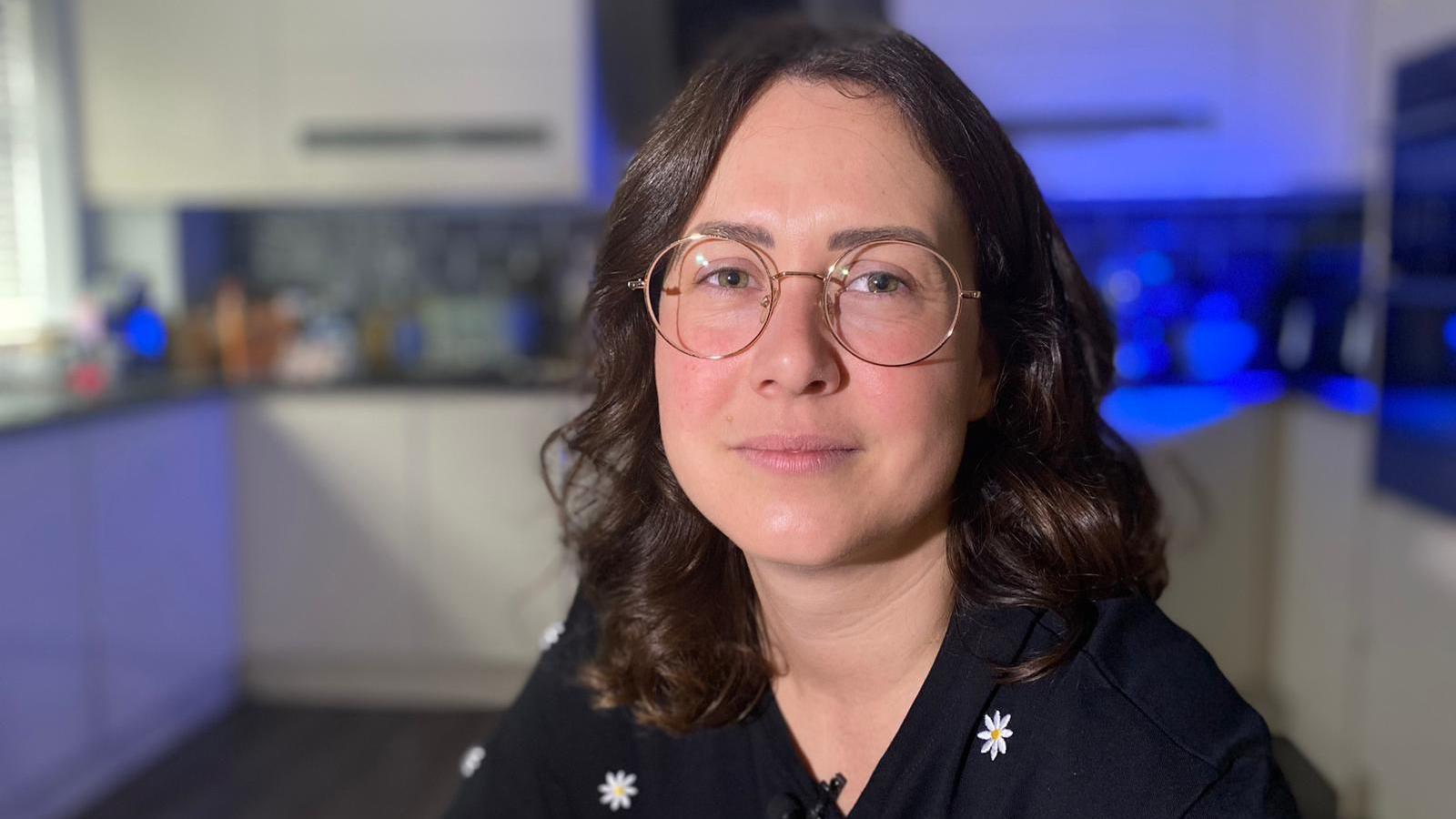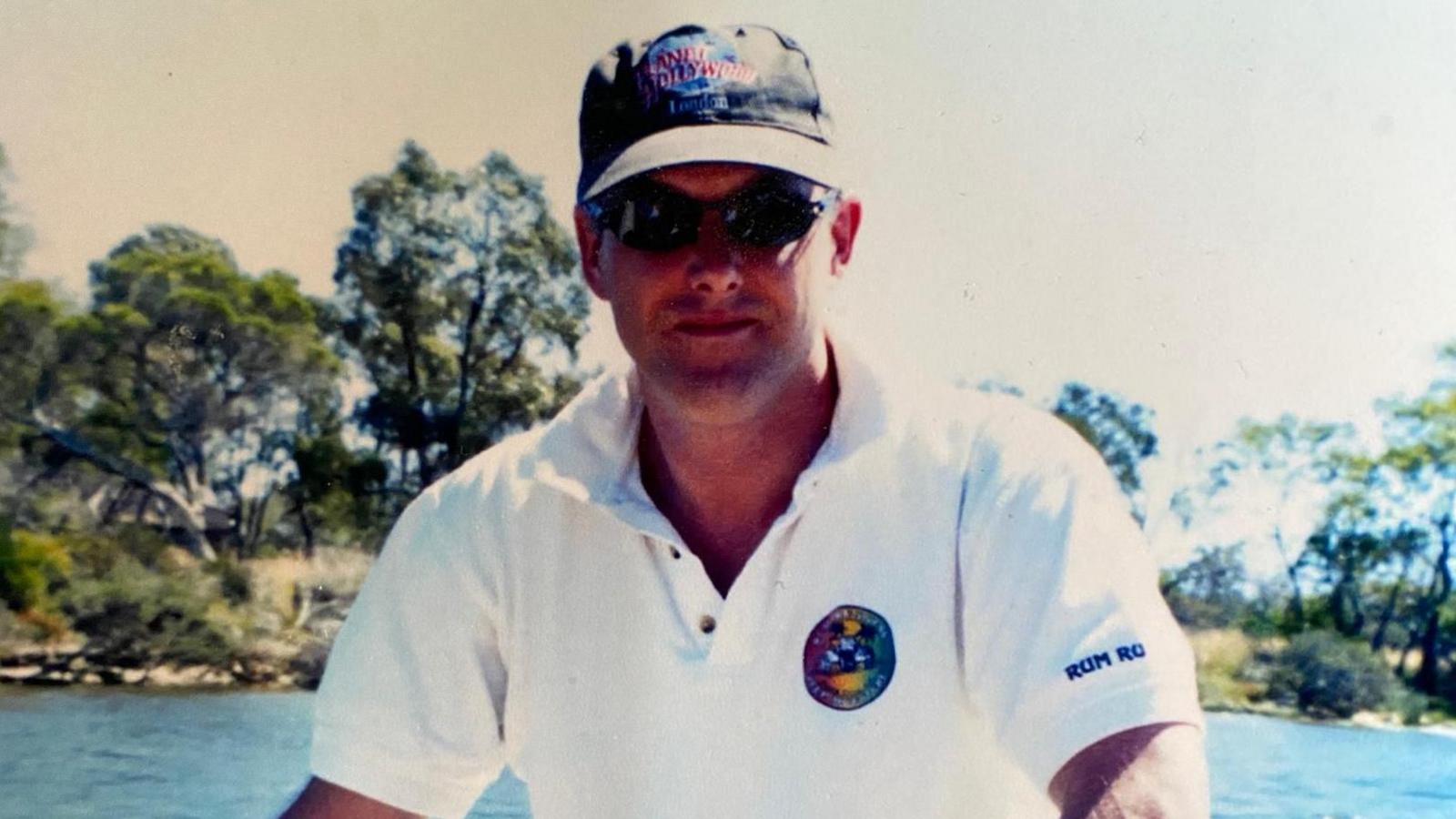Blood victim who took his life 'mistrusted system'

Carly Bayford's father Keith died in 2014
- Published
A father given blood infected with a life-threating virus had a "complete mistrust of the system" before taking his own life, his daughter said.
Keith Francis - who contracted the hepatitis C virus - died in 2014 aged 55.
Carly Bayford, from Leighton Buzzard, Bedfordshire, believes the impact it had on him contributed to his death.
The Infected Blood Inquiry, which is examining how thousands were infected in the 1970s and 1980s, will conclude in May.

Keith Francis and two of his brothers were victims of the scandal
Mr Francis had haemophilia A, a rare genetic condition which leaves people with a shortage of a blood clotting agent known as factor VIII.
In the 1970s, a treatment was developed to replace the missing clotting agents - made from donated human blood plasma - but whole batches were contaminated with deadly viruses.
Mr Francis, a London taxi driver, and two of his brothers were infected, and all have since died.
His brother, who was infected with HIV, died after developing Aids.
In her witness statement to the inquiry, Mrs Bayford said: "My father was profoundly affected by the death of his brothers and by his own [hepatitis C] infection and poor health. He really suffered mentally."
Read more on the infected blood inquiry
The school where dozens died in NHS blood scandal
- Published21 June 2021
Infected blood inquiry: Five things we have learned
- Published3 February 2023
Mrs Bayford said her father could be overwhelmed with fatigue and often had jaundice, believing events had "a massive impact, from a trust point of view".
"We go to our NHS to care for us and to look after us. Every time we do that we put our faith and trust in them to do that. I think he had no reason to be anything other than that prior to this."
Mrs Bayford said she believed the impact of the infected blood contributed to his death, believing "there's definitely a link... I think it took away his energy, which we need for life, whether we like it or not".
Ahead of the inquiry's conclusion, she said she wanted to see an "acknowledgement of the wrongs, apologies and acknowledgements of the people infected and affected", as well as compensation for the living victims and mental health support for those impacted.

Keith Francis was just one of thousands of people given contaminated blood
A spokesperson for the government - which plans to update Parliament after the inquiry's report is published - said the scandal was "an appalling tragedy, and our thoughts remain with all those impacted".
The spokesperson added: “We have consistently accepted the moral case for compensation, and that’s why we have tabled an amendment to the Victims and Prisoners Bill which enables the creation of a UK-wide Infected Blood Compensation Scheme and establishes a new arms-length body to deliver it.
“We will continue to listen carefully to those infected and affected about how we address this dreadful scandal.”
Follow East of England news on Facebook, external, Instagram, external and X, external. Got a story? Email eastofenglandnews@bbc.co.uk, external or WhatsApp us on 0800 169 1830